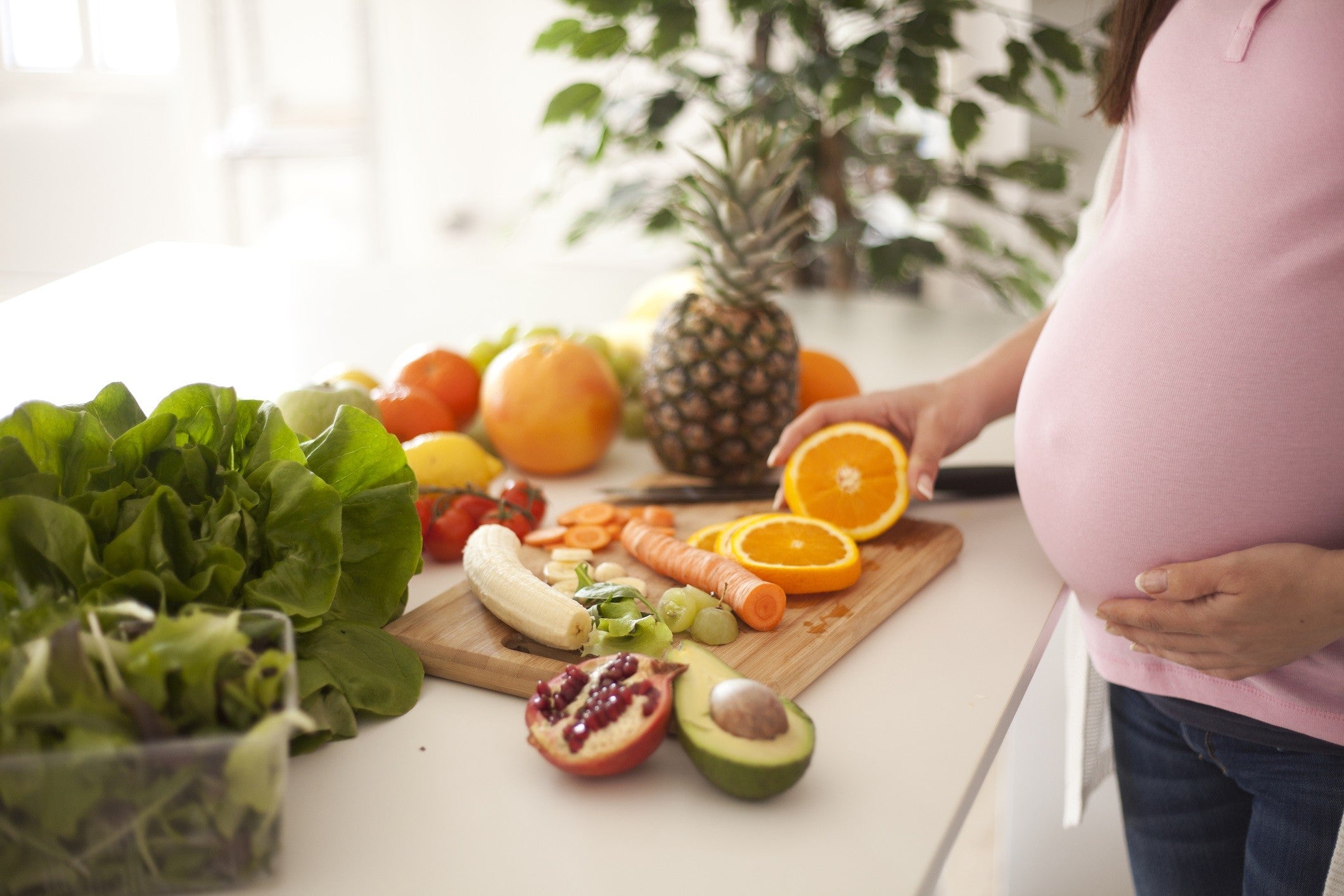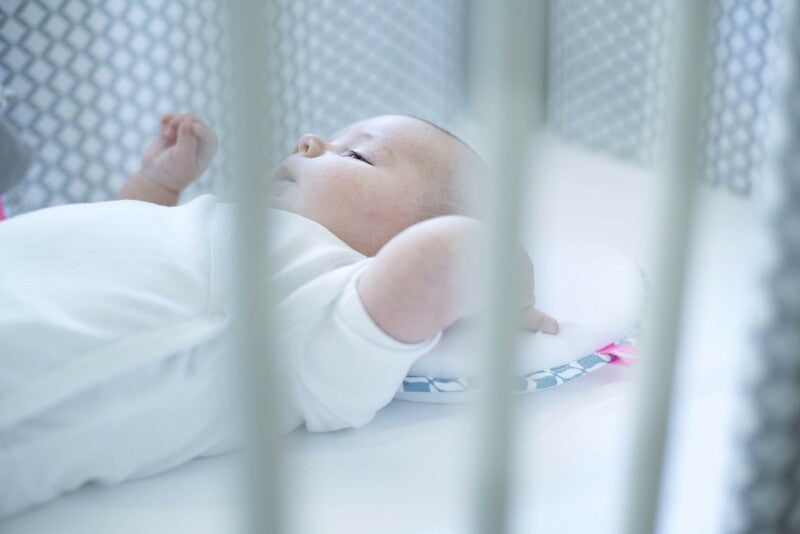Vitamins and minerals in pregnancy.
During the nine months it is very important to follow a correct diet, which includes a balanced intake of all the main macronutrients. But there are also substances which, although contained in food in very small quantities, are essential for correct fetal development depending on the gestational age and the well-being of the mother, and they are vitamins and mineral salts.
The importance of nutrition in pregnancy.
Eating properly is essential for both the future mother and the new mother Having correct eating habits and the right body mass index improves the possibility of conception and favors the good progress of pregnancy. But even once the baby is born, the mother's nutrition will affect the quality of the milk and consequently the health of the baby. In particular, some micronutrients help prevent fetal malformations, reduce the risk of premature birth and low birth weight, promote the development of the baby's nervous system, as well as of course preserve the health of the mother. However, on the basis of various scientific investigations, it appears that in Europe the intake of vitamins and mineral salts in pre-conception and pregnancy is still insufficient, and this without distinction of social classes.
The important vitamins in pregnancy
VITAMIN A (RETINOL)
Vitamin A, or retinol, promotes cell differentiation, reproduction, growth of the fetus and strengthens the immune system. However, excessive consumption must be avoided.
Where is it
Vitamin A is contained: in the liver, eggs, milk and its derivatives.
Carotenoids are found: in all yellow-orange fruits and vegetables, such as carrots, peppers, squash, apricots, tomatoes, melons, yellow peaches, mangoes, sweet potatoes, but also green leafy vegetables.
VITAMIN C (ASCORBIC ACID)
Vitamin C, or ascorbic acid, serves for the formation of collagen, counteracts the activity of free radicals, responsible for cellular aging, improves iron absorption, strengthens the immune system.
Where is it
Citrus fruits, strawberries, kiwis, tomatoes, peppers, broccoli, cabbage. However, it is a very delicate vitamin, which deteriorates in contact with air and heat.
VITAMIN B9 (FOLIC ACID)
It is important for correct embryonic and fetal development, in particular for the prevention of a serious malformation known as spina bifida. It intervenes in the formation of red blood cells, in the construction of the genetic patrimony and in the production of amino acids. Very useful for the mother to prevent anemia.
Where is it
Green leafy vegetables (beets, spinach, broccoli), tomatoes, oranges, legumes, whole grains, liver.
Given the increased need during pregnancy and its important preventive function, supplementation is usually recommended before conception, from when a pregnancy is sought and for at least the first 3 months of gestation.
VITAMIN B12 (COBALAMIN)
Vitamin B12, or cobalamin, is involved in the synthesis of genetic material, in the metabolism of certain amino acids and in the formation of red blood cells. Together with folic acid, it helps prevent fetal malformations. It also prevents vascular diseases and maternal anemia.
Where is it
Food of animal origin in general.
VITAMIN D
Vitamin D is valuable for calcium absorption and skeletal formation of the fetus and also appears to have an anti-inflammatory and immunomodulatory role. It is produced in the skin thanks to the sun's rays, but a small part can also be taken with food.
Where is it
It is normally produced in the skin thanks to the sun's rays, but a small part can also be taken with food. Major dietary sources of vitamin D are relatively few. For sources of animal origin, the foods to consider are:
• blue fish which also contains omega 3,
• salmon,
• the eggs,
• milk, in smaller quantities,
• foods fortified with vitamin D
VITAMIN E (TOCOPHEROL)
Vitamin E, or tocopherol, is an antioxidant: it prevents the oxidation of polyunsaturated fatty acids in cell membranes. During pregnancy it can prevent some diseases such as preeclampsia (commonly gestosis).
Where is it
• Extra virgin olive oil,
• dried fruit,
• whole grains and derivatives.
The important mineral salts in pregnancy
THE IRON
The amount of iron needed in pregnancy increases, almost doubling, especially in the second and third trimesters. If the future mother has an adequate reserve and regularly eats foods that are rich in it, there will be no shortages. When we talk about iron from food, we need to make an important distinction. Iron is not all the same and comes in two different forms:
• the heme iron typical of animal products and derivatives, more easily assimilated by our body which can absorb up to 25%;
• non-heme iron of plant origin, whose absorption is lower (from 2% to 13%), but can be easily increased by combining foods rich in non-heme iron with a source of vitamin C.
Where is it
The main sources of iron in the diet, according to data from the Italian Society of Human Nutrition, are:
• whole grains (0.4-12.9 mg / 100g);
• green vegetables with dark green leaves such as rocket, spinach, chard (1-7.8 mg / 100g);
• dried fruit (1.9-7.3 mg / 100g);
• fish (0.2-6.0 mg / 100 g);
• legumes (4.5-9 mg / 100g);
• meat, in particular liver and offal, but also that of horse and turkey (0.4-3.9 mg / 100g);
• eggs, especially the yolk (4.9 mg / 100g).
THE IODIUM
Iodine is a constituent of thyroid hormones, and is involved in the formation, growth and development of various organs (the role played in the maturation of the brain is crucial) and systems, as well as in glucose, lipid and protein metabolism. Its deficiency could cause hypothyroidism, cretinism and small-for-gestational-age infants.
Where is it
Mainly in fish. It is also a good rule to replace normal table salt with the iodized type.
FOOTBALL
Calcium is very useful for the development of the skeletal system of the fetus. During pregnancy and breastfeeding, the need to meet the baby's nutritional needs increases.
Where is it
• In milk and all its derivatives (in which a highly available form is present),
• in dried fruit,
• in vegetables of the cruciferous family (turnip greens, broccoli)
• in legumes. Dear mothers, after reading our article, we recommend that you visit our Luxury Kids site where you will find many items for your child.






Leave a comment